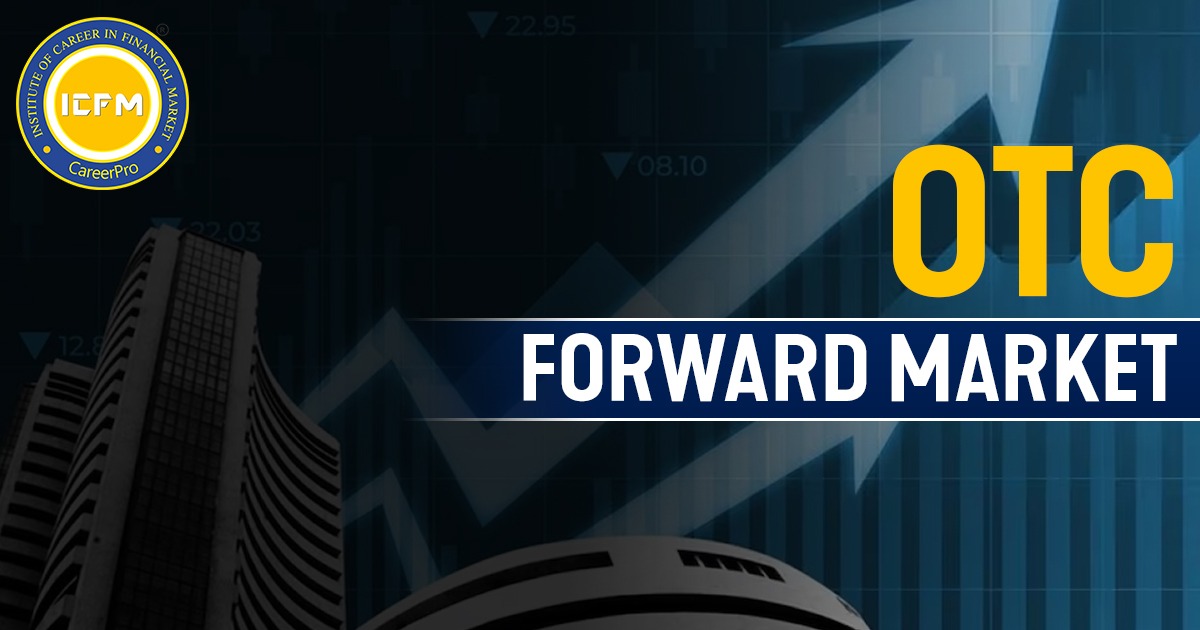Perhaps the
most important fragment of any financial landscape, the over-the-counter
forward market provides customized solutions to risk management and speculative
opportunities. Unlike exchange-traded derivatives, where the product is
standardized, over-the-counter forward contracts are tailor-made agreements
between two entities that allow for much greater flexibility with regard to
contract size, maturity, and underlying assets. This blog covers an overview of
the OTC forward market, along with its associated advantages, disadvantages,
and place in the global financial system.
What is the OTC Forward Market?
The OTC
forward market comprises trading in forwards, which are agreements to buy or
sell an asset at an agreed price on a future date. Forward contracts are unlike
the futures contracts that trade in exchanges; therefore, these are contracts
negotiated directly between parties, typically financial institutions,
corporations, and sometimes individual investors. These are tailor-made, based
on the needs of parties entering into a contract with one another, and hence
non-standardized in nature.
Key Characteristics of OTC Forward Contracts
1. Customization: This is one major advantage that
OTC forward contracts have over exchange-traded forwards. The parties are able
to iron out terms that best serve their interests, including the size of the
contract, maturity date, and the type of underlying asset.
2. Counter-party Risk: By the very nature of the
transaction, OTC forward contracts are not exchanged on an exchange. Hence,
there is counter-party risk—the possibility that one side of the deal will
default. This is a concern in the OTC market.
3. Lack of Regulation: The OTC forward market is not
regulated as much as exchange-traded markets. This may be an advantage but also
a disadvantage due to the leeway given while running the risk associated with
less regulation.
4. Liquidity: In the case of OTC forward contracts,
liquidity may range from very high to low, depending on the contract. Some will
be highly liquid, and others, specially devised for very narrow niche markets
or atypical needs, won't.
Advantages of OTC Forward Contracts
1. Flexibility: Customization option available in
the contracts makes OTC forward contracts highly flexible. This especially
helps those many businesses that want to hedge some specific risks that may not
be hedged through standardized contracts.
2. Hedging Capabilities: Corporations mostly enter OTC
forward contracts for hedging currency risk, interest rate risk, and commodity
price fluctuations. Corporations lock in prices and hence are protected from
adverse movements of the market.
3. Privacy: OTC forward contracts offer some
level of privacy that will not be realized with exchange-traded derivatives.
The contract terms are only known to the contracting parties, and this may be
helpful for competitive reasons.
Disadvantages of OTC Forward Contract
1. Counterparty Risk: One major drawback is that there
exists the occurrence of default risk. Unlike exchange-traded derivatives,
there is no central clearinghouse which performs and guarantees the performance
of a contacted.
2. Liquidity Risk: Liquidity risk occurs when some OTC
forward contracts can be very hard to unwind or sell before maturity.
3. Complexity: This is a rather complex market,
and negotiating and managing OTC forward contracts requires special knowledge
and skill.
The Role of the OTC Forward Market in the Financial System
The OTC
forward market is important for the world financial system. It provides an
opportunity for risk management and price discovery within any financial
instrument. It assists corporates in hedging various risks and therefore
contributes to the improvement of the overall financial stability. Besides, it
also creates possibilities for speculation according to one's view on the
markets.
Conclusion
The OTC
forward market is part of a dynamic financial world, tailoring made-to-order
solutions for hedging and speculating. Even though it has its own kind of
risks, including counterparty and liquidity risks, the flexibility and
customization make it a very useful tool for too many market participants.
There could be no meaningful participation or understanding of the greater
financial markets without a proper understanding of the intricacies of OTC
forward contracts.









